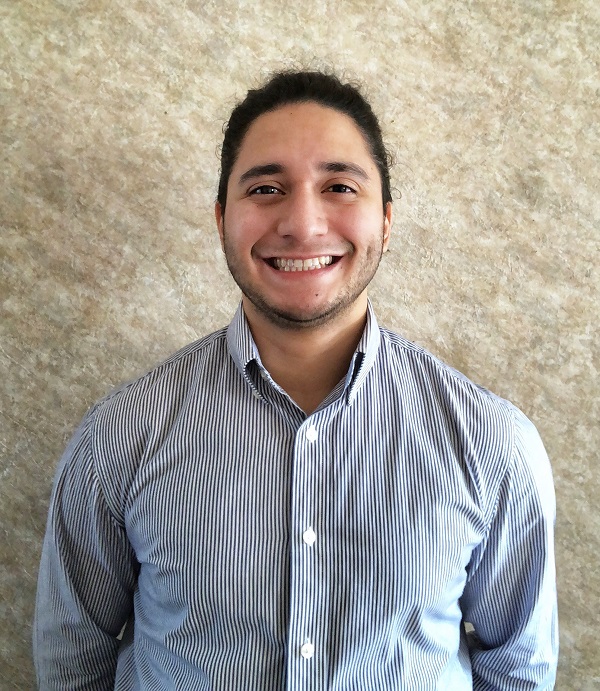A Note from Child Center CEO Traci Donnelly:
I am honored to mark Social Work Month this year by introducing you to one of The Child Center of NY’s many dedicated social workers, Diego Martinez. Diego works in our Jamaica Family Center, guiding clients who struggle with addiction in developing the skills and confidence to find lasting recovery. As you’ll see from this Q&A, Diego represents what is true of just about all the social workers I’ve known (and I’ve known many!): that social work, despite the heavy toll it can sometimes take, is a labor of love.
With respect for the individuality and culture of our children and families, and a focus on their assets and strengths, The Child Center’s social workers encourage our kids to find their voice and live their truths. They show acknowledgment for the courage it takes to get support, and the trust our clients have in us in turn never goes unappreciated. Whatever clients struggle with — whether it’s addiction, an experience with trauma, or the everyday difficulties of living below the poverty line or wanting to do better in school but lacking the resources — our social workers play an invaluable role in the most vital imperative of any society: raising the next generation to be healthy, happy adults, poised to give back to their communities and live a fulfilling life. We know that each one of our kids has so much to give. I am grateful to have this opportunity to salute the professionals who work so hard every day to help our kids realize their own full potential.
The Child Center of NY: What prompted you to pursue a career as a social worker? How did you decide to specialize in addiction treatment?
Diego: I was attracted to the human interaction that social work provides. I was naturally curious to learn and understand different components of someone’s life — and how to help them with the parts they wanted to change. I was fascinated by the extent to which certain substances affect an individual — physically, mentally, and socially — and have come to understand the complexities of addiction and the level of sensitivity, assertiveness, and motivation that one needs to overcome such a devastating disease.
How long have you been a social worker?
In 2015, I began my career as a social worker in graduate school at Hunter College, working both in a community-organizing role with Latino day laborers as well as working with a diverse student body in a high school in Queens. Upon graduating in May 2017, I began working in addiction treatment with The Child Center of NY as a social worker.
What do you like about the way The Child Center approaches addiction treatment?
I most appreciate the humanistic approach that The Child Center subscribes to. It allows therapists to work with clients with the knowledge that one’s addiction does not and should not define them. It is an added challenge to understand someone; however, working toward providing a client with a sense of relief, serenity, and sobriety motivates me to work alongside the client that much more.
The Child Center also help clients with things like finding employment. In your experience, how important is that practical assistance in achieving long-term sobriety?
Our wonderful vocational counselor, Erin Vattes, works most closely with our clients in finding employment. In building a rapport with clients, you begin to understand the needs and interests that they bring. Employment can be a significant and useful factor in regard to long-term sobriety. Many times, clients benefit from being a part of something bigger, taking on responsibilities, and earning an honorable wage.
We hear so much about celebrities being “in and out” of rehab and relapsing. Is long-term recovery really possible?
Celebrities and the media provide a bittersweet image of what recovery can be. Long-term recovery is possible with the proper maintenance and tools. Therapy is never meant to be eternal. The role of a therapist is to (re)acquaint clients with the necessary tools to address future problems on their own. Nevertheless, relapse is a possibility for those in recovery. The role of a therapist may continue if this occurs with less judgement and more of an understanding that this disease is challenging to overcome.
Do you have a personal story you’d like to share that illustrates why you do what you do?
Generally speaking, I was never one to share my own story with anyone for fear of judgment, criticism, or rejection. After entering therapy for my own self, I was able to understand the importance of understanding one’s own story to be able to then share with the rest of the world. I believe social work allows for both the client and worker to begin to understand themselves. I’ve seen the benefits of therapy firsthand, which has honored me to be put in a position to provide this for someone else.
What is the one thing you wish people knew about your job and your clients?
This profession calls for a great deal of emotional — and physical — stamina that does not always replenish as quickly as one would hope. Working with clients toward their own progression, you can easily forget about your own needs and desires. The long-term effects of this equates to social workers feeling burnt out. This knowledge has made me cherish the concept of self-care as invaluable. At times, remembering to focus on one’s own self become more challenging than working with the presenting problems and challenges that clients bring to therapy.
As far as what I wish people would understand about my clients, I’m reminded of a quote I once heard: “From the outside looking in, you can’t understand it. And from the inside looking out, you can’t explain it.” I find it especially true when discussing addiction. When looking at those who are experiencing addiction, I would like others to consider what it would be like to be so dependent on something, to the point that they are not able to function without it. That could be one’s partner, child, friend, pet, music, or cell phone. Addiction is no different. From an external perspective, it is easy to pass harsh judgment regarding someone’s substance use, perceiving it to be a sign of weakness or a permanent blemish on their life. However, addiction can become indescribable and so unique to each individual going through it.
I would implore others to be an ally in supporting those experiencing addiction to allow them the opportunity to work through it — because with the right support, most people will make the most of that opportunity.







